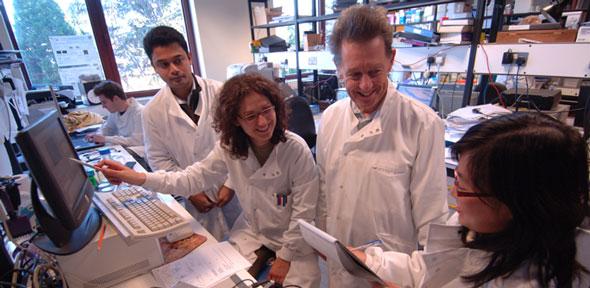
The government’s higher education agenda, current University priorities and the importance of supporting staff were to the fore at the latest open meeting.
The Lent Term Open Meeting for Administrative Staff took place last week, with approximately 250 people gathering at the Mill Lane Lecture Theatres to hear an update on policy changes across the higher education sector and current developments within the University and UAS.
Professor Eilis Ferran, Pro-Vice-Chancellor for Institutional and International Relations, also gave a personal reflection on her PVC portfolio, with particular emphasis on the University’s emerging People Strategy (see panel below).
The meeting began with a presentation from Dr Jonathan Nicholls, the University’s Registrary, focusing on some of the big themes and issues facing universities and HE providers. Dr Nicholls explained that this was, in many ways, a period of review and renewal for the sector: the government was currently consulting on the Teaching Excellence Framework and other aspects of last year’s Green Paper; HEFCE had recently published proposals on how quality assessment should operate in the future; and universities across the UK had just finished responding to Lord Nicholas Stern’s review of the Research Excellence Framework. Dr Nicholls said that a higher education bill looked increasingly likely given the need for legislation to enact key aspects of the Green Paper and Sir Paul Nurse’s recommendations on the future of research funding – although this was unlikely to be an easy ride for the government given the Tories’ minority status in the House of Lords. The government’s legislative priorities may of course change if the country decided to leave the European Union in June, he added.
The wider financial climate remained difficult. The Chancellor had indicated that the austerity approach to public finances may persist for some time. Closer to home, Dr Nicholls said that he believed there was still work to be done to put the Universities Superannuation Scheme on a long-term sustainable footing, and that some level of dispute over the latest round of pay negotiations between employers and unions seemed inevitable. All of which put pressure on the University – not only to balance the books in the short term, but also to put in place the kind of structures and revenue streams that would safeguard its finances well into the future. Another major issue of importance was regional devolution. Dr Nicholls explained that the government hoped to create an eastern powerhouse covering Norfolk, Suffolk and Cambridgeshire, but that coordination between the key players was currently proving challenging.
He went on to say that many of the University’s current priorities were being shaped by the wider political and economic climate, although they were designed to ensure that Cambridge remained one of the world’s leading universities – in charge of its own affairs and able to fulfil its mission. The Campaign, central to this vision, had so far received £600m. Phase 1 of the North West Cambridge Development remained on track, with important recommendations from Mark Lewisohn’s recent review due to be enacted to strengthen the governance and management of the NWCD and future capital projects. Meanwhile, Dr Anthony Freeling’s review of Cambridge Assessment and Cambridge University Press had made related recommendations on how the University owned and ran large commercial businesses and projects.
Turning to the UAS, Dr Nicholls mentioned the forthcoming UniForum benchmarking project, an institution-wide survey that will help the University understand how much it spent on administrative services in support of teaching and research, and make informed decisions in relation to future resource allocation of administration. He also reported on the successful relocation of 400 staff from central locations to Greenwich House in west Cambridge. There had been a number of key central appointments, including Emma Stone as Director of Human Resources, Jason Matthews, who will start as the new Director of Estates Strategy in June, and Regina Sachers as Head of the Vice-Chancellor’s Office.
